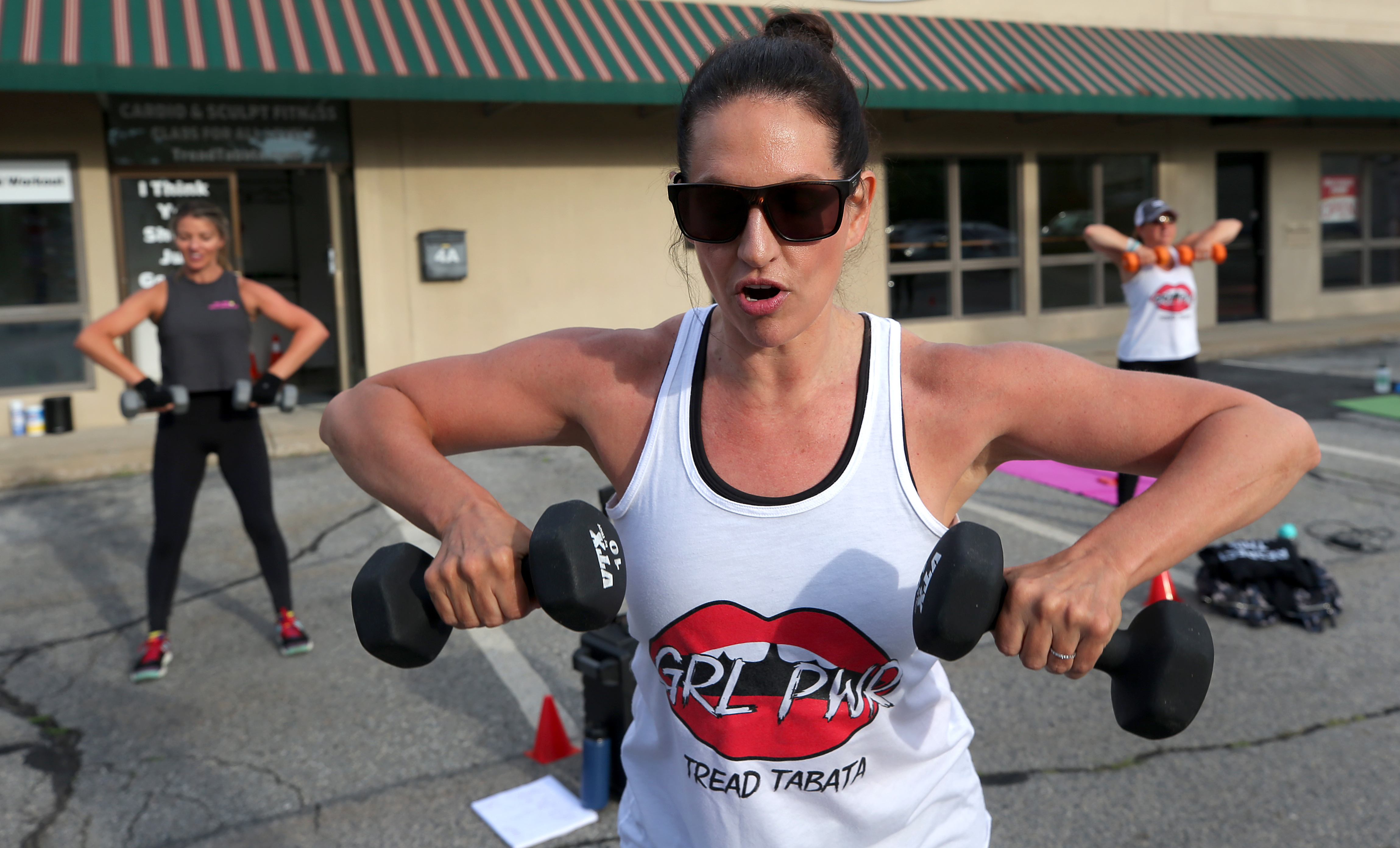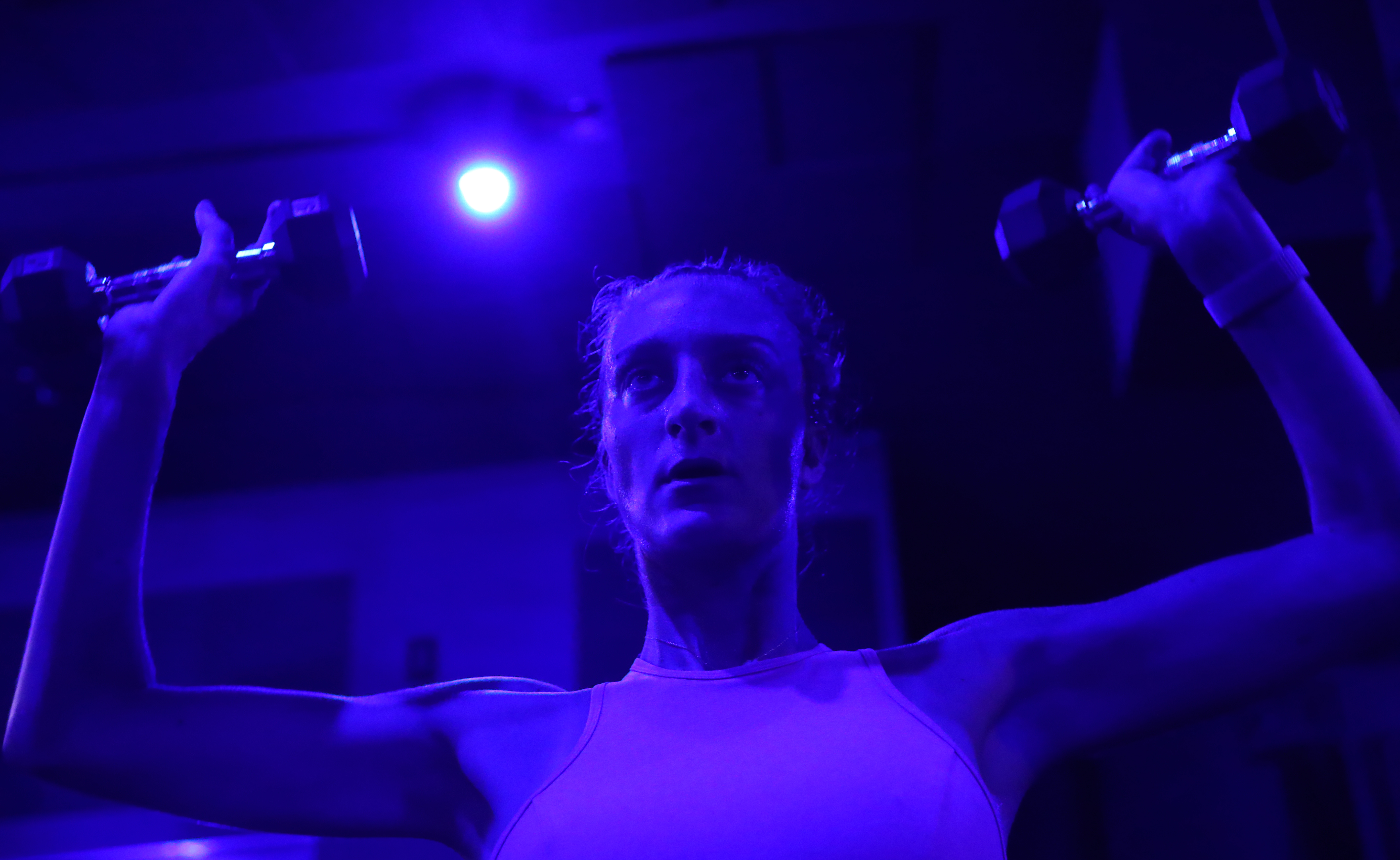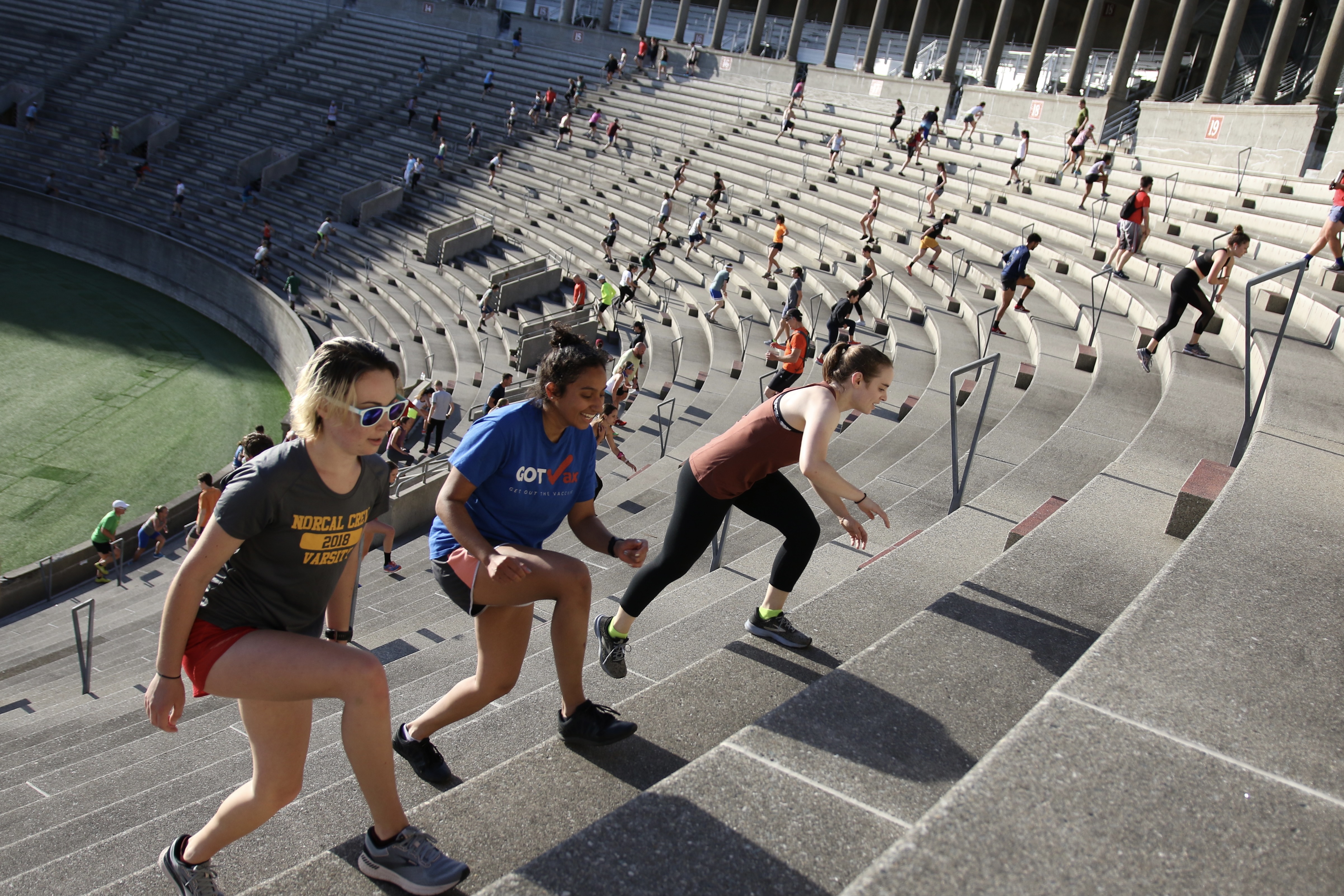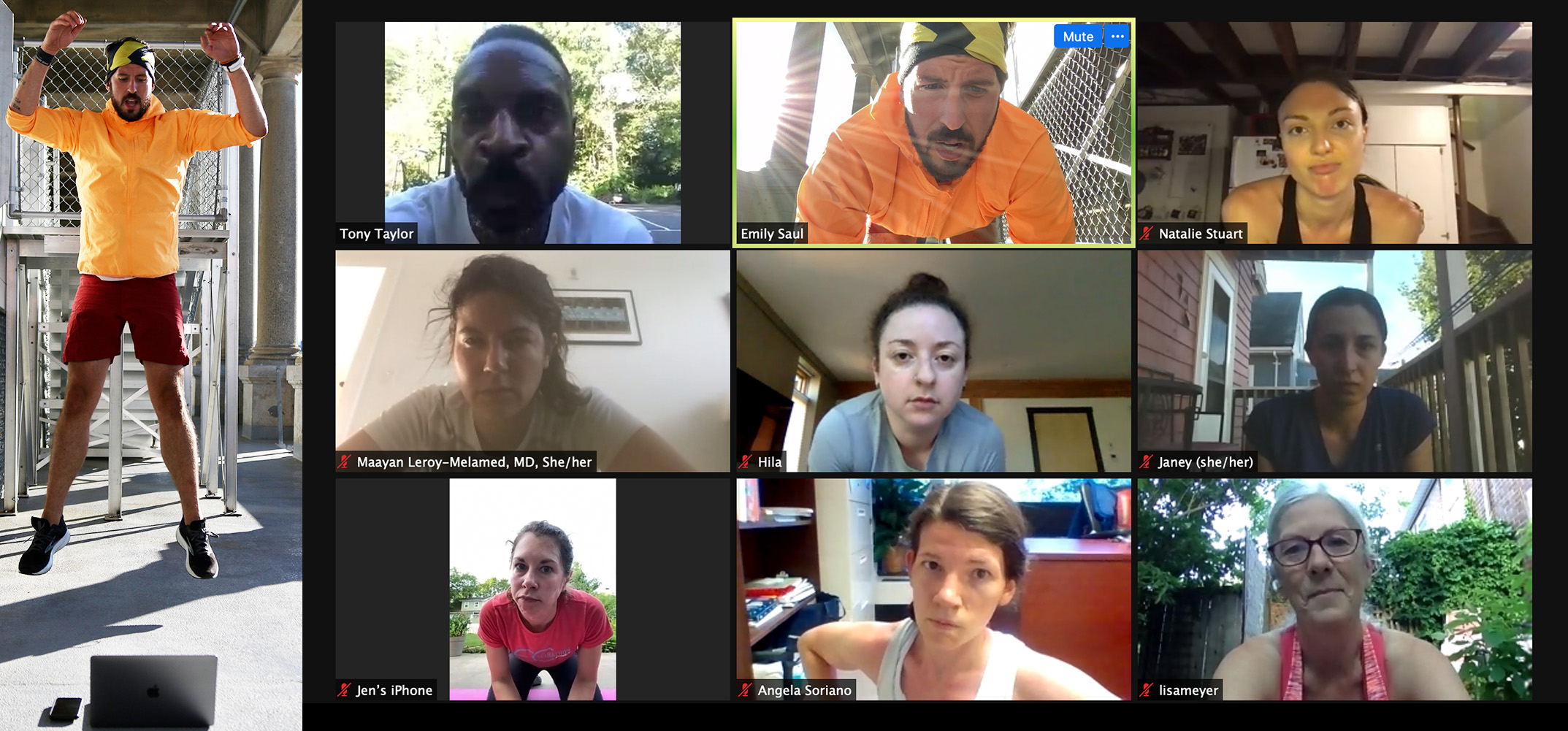But, she claimed, popular vaccination rates have manufactured persons much more relaxed with team workouts, and you don’t have to wear masks inside any longer. Moreover, Glabicky explained, people today want to get back again in condition.
“I’m not at 100 % [business] however, but I’m having there,” she stated. “Everybody was completely ready to go inside of.”

In accordance to exercise scheduling app ClassPass, there are roughly 300 health and fitness studios in the Boston space that offer lessons by its system, about double the variety for San Francisco or Miami. Reservations in Boston are up 270 p.c since January, explained spokeswoman Mandy Menaker, and 32 percent considering the fact that May possibly 29, the working day Massachusetts lifted nearly all pandemic constraints.
Of system, not every single health organization manufactured it as a result of the pandemic. As of December, it was believed that 17 per cent of health and fitness clubs and studios in the United States experienced shut permanently, according to the Worldwide Wellbeing, Racquet, and Sportsclub Association, a trade group primarily based in Boston. Shuttered fitness centers dot strip malls and major streets throughout Bigger Boston.
And even at studios the place there is a continual uptick in bookings, house owners say that finding website traffic back again to pre-COVID concentrations has been an uphill fight. Some purchasers splurged on at-property training equipment in the course of the pandemic, these kinds of as the Peloton bicycle, bought in a new exercise plan or — even even worse for their local studios — moved absent. Predicting their return, or knowing it won’t occur, is challenging.
“People really do not obtain a Peloton and then e-mail you and say ‘Hey, heads up, you are no extended heading to see me purchasing 10-course packs,’ ” mentioned Lauren Meyer, co-proprietor of the Boston fitness studio Mystryde. “It would be good if everybody who utilised to arrive listed here explained to us what they are carrying out and what they want, but we do not have that knowledge.”

That puts pressure on studios to carry in new clients to make up the variation, explained Becca Skudder, Meyer’s company companion and founder of Mystryde. The gym is trying to retain consumers by membership gross sales, she explained, considering the fact that it is a extra predictable stream of revenue, as opposed to fall-ins. But signing on users has been challenging since out of the blue there is so considerably levels of competition for people’s time.
“People have 10 weddings mainly because 5 of them ended up supposed to be very last summer season,” she said. “People are working from residence, so they can leave for a handful of months.”
At Tread Tabata, a large amount of shoppers — each new and returning — are dipping a foot in the h2o with drop-in lessons, Glabicky said, signing up for a full membership only when they’re ready to appear again on a reliable foundation. That first drop-in course is important having said that, she claimed, due to the fact numerous cite worries about getting out of condition.
“Some of the men and women that appear in say they have not labored out at all throughout the pandemic,” she reported. “We’re happy they’re below.”
Although some return to indoor studio exercise routines, some others are flocking to large-scale outside programs that also took a pandemic hiatus.
November Job hosts free outside workout routines calendar year-round, but past March went absolutely virtual when COVID constraints built it impossible for hundreds of persons to get in 1 area. The Boston nonprofit restarted outside programming last tumble, but with small groups scattered across the metropolis, alternatively of just one big exercise, and individuals experienced to dress in masks and socially length. In June, November Undertaking resumed its significant workouts again, which include climbing the stairs at Harvard Stadium in Allston each individual Wednesday morning.

“The folks who appear to November Undertaking do not want to do the job out by themselves,” said Emily Saul, coleader of the Boston chapter. “It feels usual [to be together], and that is the weird issue about likely back again.”
And the team uncovered a lot in the months it was aside, Saul reported. Leaders decided to maintain digital programming — something Saul never ever considered they would start off — and be additional intentional about the place November Job holds exercises all-around the town. Saul mentioned the nonprofit realized that virtual workout routines and smaller group periods unfold all around Boston made the group’s events much more obtainable and inclusive.

November Undertaking is free, but gym and studio proprietors reported it was tough to monetize digital choices, so they are scaling them back again. Glabicky said “everybody and their mom started on the web workouts” for the duration of the pandemic, and Skudder stated it was tricky to compete with currently proven on-line fitness firms.
Gyms are observing a publish-COVID boost, way too, but Ed Mazzuchelli, owner of Coach4Existence in Marshfield, mentioned the pandemic caused a obvious shift in shopper paying routines, so the fitness center experienced to tweak its business enterprise model.
Ahead of the pandemic, most of the gym’s income came people seeking personal coaching memberships, a single-on-1 health coaching that could expense $200 to $600 for each thirty day period. Those people were being the to start with shoppers to cancel when COVID-19 hit, and the least most likely to arrive again during numerous phases of reopening with their mask policies and distancing protocols.
“That was an ‘oh crap’ moment,” Mazzuchelli said. “It wasn’t right away, but we understood it was time to pivot.”
After a not-so-productive endeavor at building digital content, Mazzuchelli turned his staff members into “painters and fixer-uppers” when the health and fitness center was shut. He also purchased new gear, remodeled the juice bar, and targeted on promoting extra classic fitness center memberships, for $40 to $50 a month.
“We’ve absent by the roof in phrases of adding new associates,” he mentioned. Teach4Life now has about 1,000 users, 25 % a lot more than before the pandemic.
The most gratifying consequence, he claimed, is the selection of persons who still casually thank him for keeping the gym’s doorways open up. Men and women are much better at wiping down tools immediately after they use it, as well.
“I think men and women took gyms for granted right before,” he stated. “There is a level of appreciation now.”
Anissa Gardizy can be arrived at at [email protected]. Observe her on Twitter @anissagardizy8.






More Stories
Gym Dinosaurs Face Extinction – An Alternative Look at the Fitness Industry
Jessica Simpson’s Workout Routine
Hoist Fitness Equipment Reviews – Should I Buy Hoist Exercise Equipment?